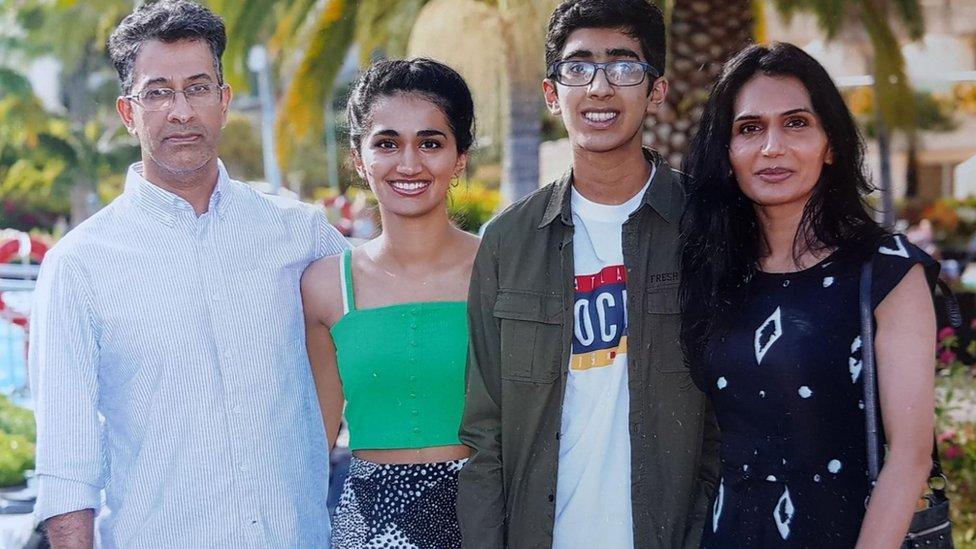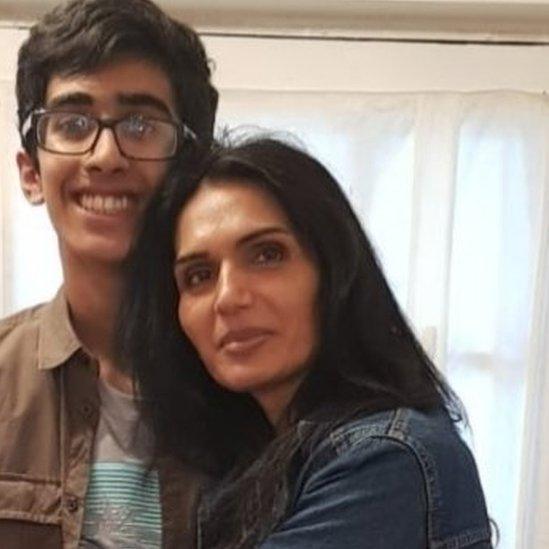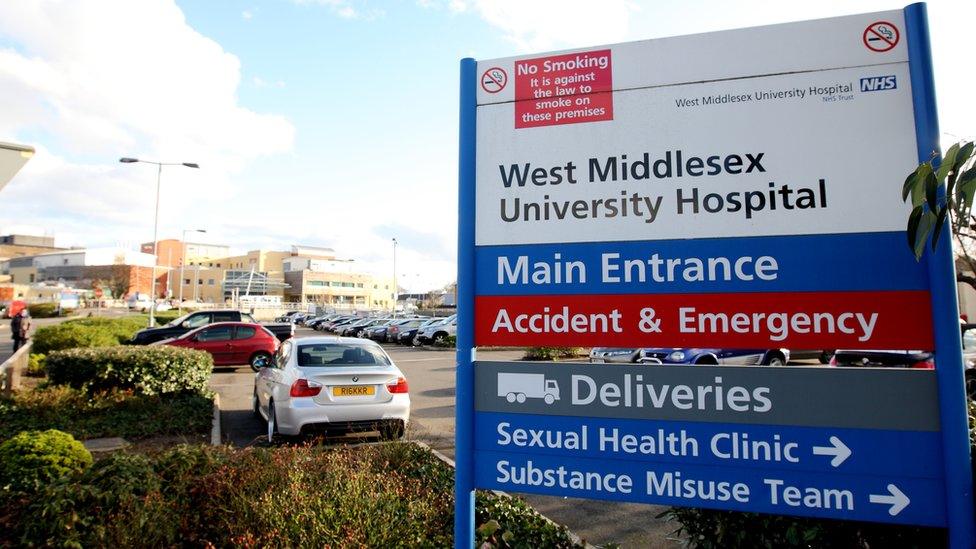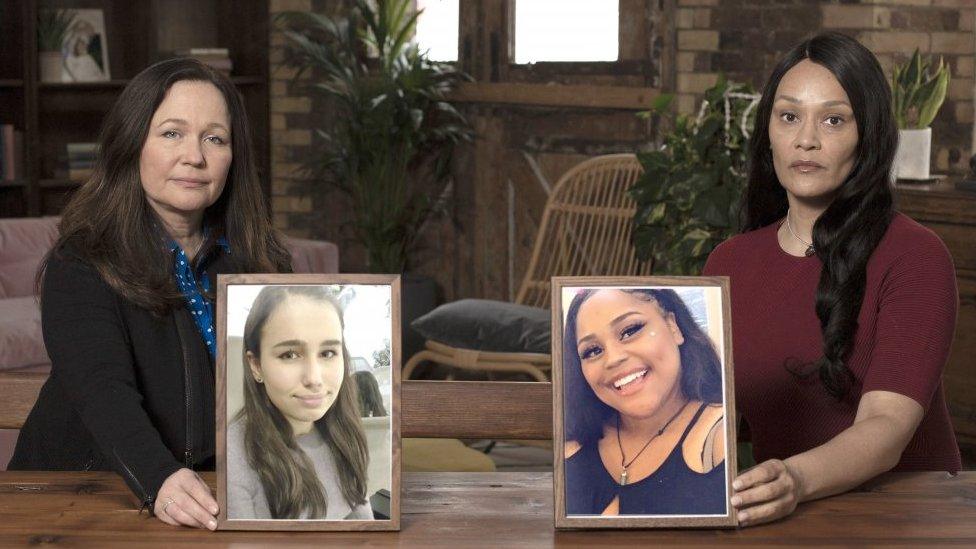Mother calls for warnings after son's protein-shake death
- Published

Rohan Godhania (second from right) died at West Middlesex Hospital
The mother of a teenager who died after drinking a protein shake says she hopes changes will be made to stop other people "dying unnecessarily".
Rohan Godhania, 16, from Ealing in west London, fell ill after consuming a protein shake on 15 August 2020.
He died three days later after suffering brain damage and was later diagnosed with a rare disorder.
Three years on from his death his mother, Pushpa Godhania, is calling for warnings to be put on the drinks.
She also wants new hospital procedures to be implemented so patients with certain symptoms to be tested for raised ammonia levels.

Mrs Godhania said she still hopes that her son is going to come home
Rohan died from ornithine transcarbamylase (OTC) deficiency, which prevents the breakdown of ammonia, causing it to build up to lethal levels. It can be triggered by a large amount of protein - in this case, the protein shake, made from Ultimate Sports Nutrition (USN) protein powder.
Mrs Godhania said: "They should put a warning on there that if anybody ends up vomiting as a result of [drinking] it and starts feeling unwell they should immediately get emergency attention.
"If we just say 'if you feel very sick and you're vomiting as a result of this, ask for an ammonia test' - put it into some very simple language - that would help."
Mrs Godhania explained that her son, who was treated at West Middlesex Hospital, was put on medication for encephalitis and meningitis because doctors suspected there was something wrong with his brain.
'Lost opportunity'
By contrast, she believes there was "a reluctance" to test for raised ammonia levels, which can be caused by rarer conditions like OTC.
"I think it is about time that this test is now used in emergency departments and I hope NHS England are putting in good measures," she added.
An inquest held last month into Rohan's death heard that his medical team received advice from neurologists at Charing Cross Hospital to test him for ammonia.
However, senior coroner Tom Osborne concluded this screening was not carried out and called it a "lost opportunity" to give Rohan further medical treatment that could have "prevented his death".

The coroner said further medical treatment may have prevented Rohan's death
Mr Osborne indicated he would send a prevention-of-future-deaths report, external to the Food Standards Agency (FSA).
It is likely to ask the FSA to consider whether labels on high-protein drinks and supplements should feature a prominent warning about the potentially fatal risk of a sudden spike in protein for people with undiagnosed disorders, including OTC.
Mr Osborne is also expected to highlight the lack of guidance for testing ammonia levels in a prevention-of-future-deaths report to be sent to NHS England and NHS Improvement.
Friday will mark the three-year anniversary of the teenager's death and Mrs Godhania said: "All his belongings around the house haven't changed. I don't have the heart to change anything, so everything is as if he has gone away for holiday.
"It feels like it was just yesterday. You still hope that he's going to come home and none of this is real."
A spokesperson from Chelsea and Westminster Hospital NHS Foundation Trust said: "The trust notes the outcome of this inquest. We offer our sincere condolences to the family of Rohan Godhania."
USN has been contacted for a response.

Follow BBC London on Facebook, external, Twitter , externaland Instagram, external. Send your story ideas to hellobbclondon@bbc.co.uk, external
Related topics
- Published27 June 2023

- Published15 May 2023
